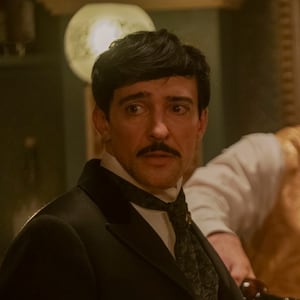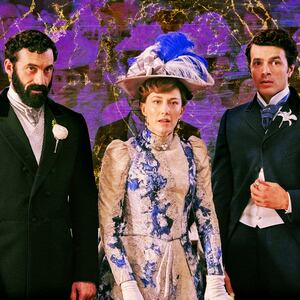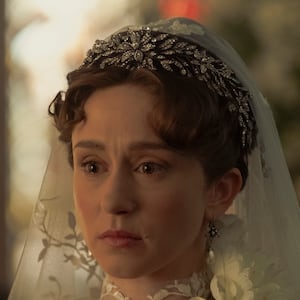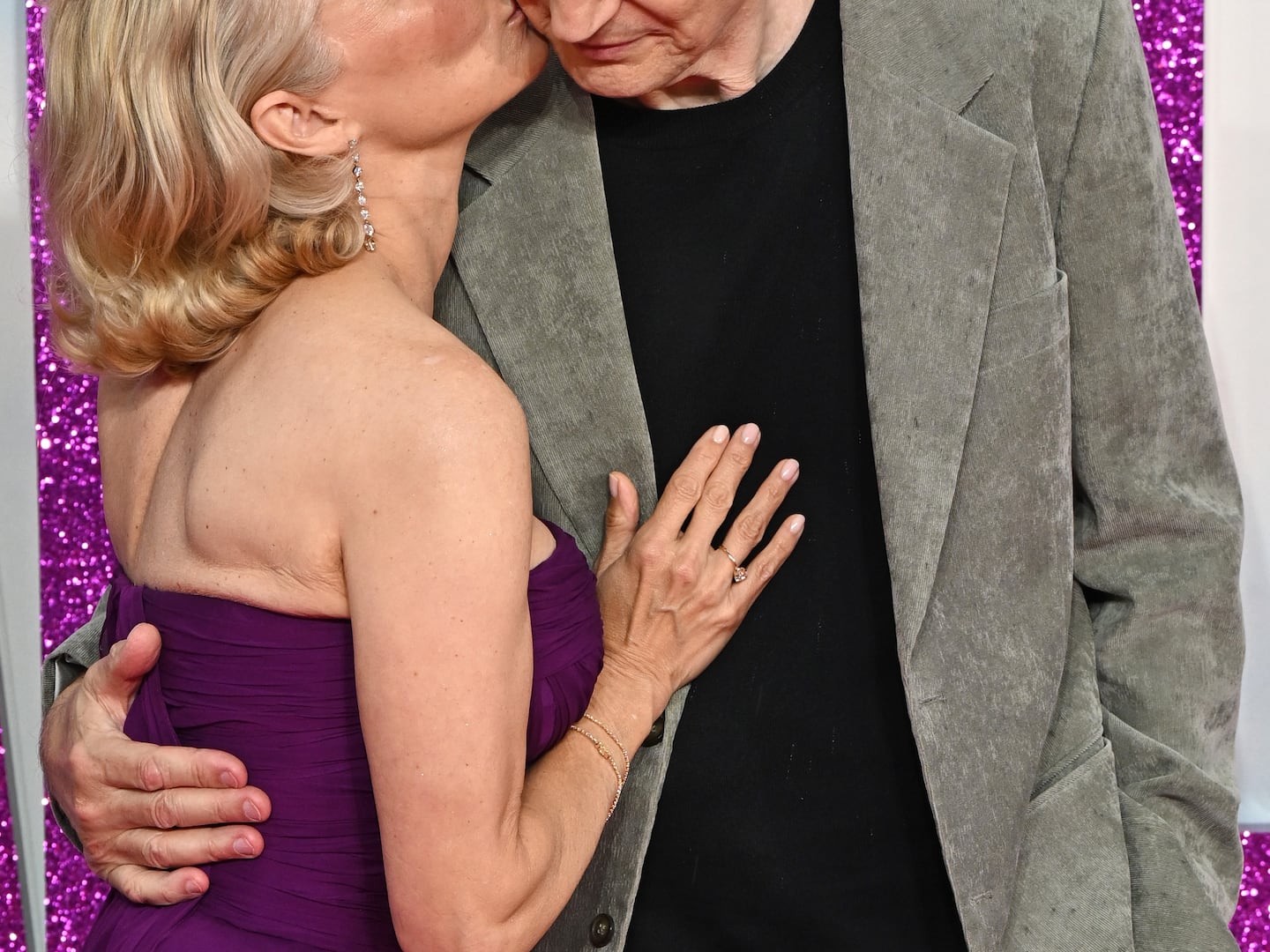(Warning: Spoilers ahead.)
For a series so fascinated by romance, you’d think The Gilded Age wouldn’t shy away from showcasing and celebrating its only queer relationship.
Instead, Sunday’s episode closes out with the shocking death of John Adams (Claybourne Elder), Oscar van Rhijn’s (Blake Ritson) partner. It seemed like the series was finally making some strides in allowing fans a deeper look into their relationship (after the two men barely shared the screen in Season 2), with John helping Oscar get back on his feet after losing the van Rhijn family fortune. Yet here we are, with John dead and Oscar now left to face the world alone.
Since Season 1, the series never really allowed the two men to engage in romantic gestures or display affection, keeping the couple at a significant distance from one another, even when they’re in private.
It’s a significant change from Downton Abbey, The Gilded Age creator Julian Fellow’s previous period drama, which featured Thomas (Rob James-Collier), a butler and the series’ primary gay character. While Oscar appears nearly sexless in The Gilded Age, Thomas shared passionate kisses with multiple men and had various relationships (although pretty fleeting) throughout the show’s run.
It’s baffling then, that a series developed airing now is doing its queer characters more of a disservice than a show that premiered in 2010. The Gilded Age as a whole is overwhelmingly sexless, but the straight couples on the show still exude a certain level of sensuality.
Each word shared between Bertha (Carrie Coon) and George Russell (Morgan Spector) crackles with a magnetic tension that makes up for the show’s lack of sex, so it is possible for the series, if slightly chaste, to still display that two characters are infatuated with each other. Oscar and John were never given the same space to explore desire within the confines of this soapy genre.
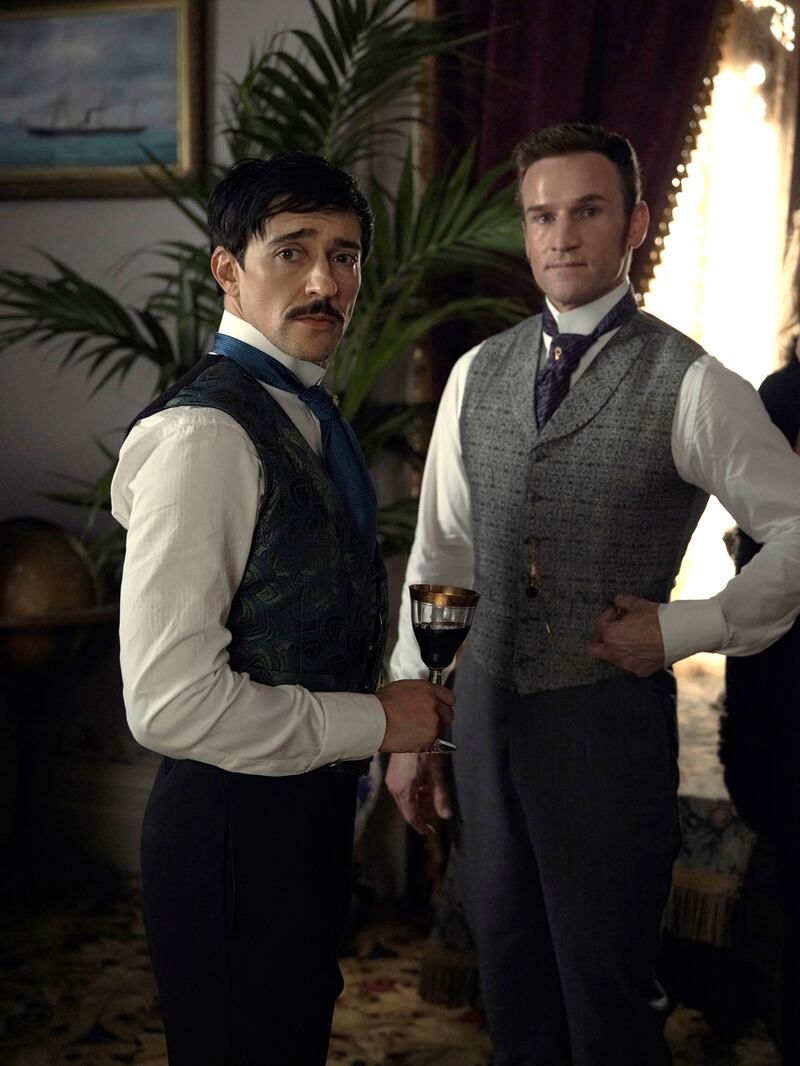
While the two men have traded “I love yous,” this love remains behind closed doors, only ever expressed dDuring hushed conversations in darkly-lit rooms away from the watchful eyes of their peers. Their conversations have an intangible chemistry that is no different from the way straight men converse with each other in this series. Everything shared between John and Oscar is abrupt, as if the two men find loving each other to be a chore rather than something that brings them a sense of freedom in a world where they have to hide their sexual orientations.
In Downton Abbey, Thomas’ interactions with other queer men were almost always sexually charged, yet John and Oscar’s relationship remained sexless and stagnant.
Now that the only man he was able to find solace in is dead, Oscar is no longer a man who has found love despite society’s harsh realities, and is instead forced to exist as one of television’s many gay characters whose lover was tragically killed off. (There’s a whole name for this exasperating trope: “Bury your gays.”)
Beyond the fact that he’s gay, the only other real attribute that Oscar has been given by the writers is that he’s kind. At times he feels more like set decoration than a vital member of the series’ sprawling cast of interesting characters.
He is present for many important conversations between Agnes (Christine Baranski), Ada (Cynthia Nixon) and Marian (Louisa Jacobson), yet he never voices what he thinks of the going-ons of high society. While you could commend Fellows for even including these characters at all, in 2025, having queer characters simply present in your story instead of meaningfully highlighted is not enough.

Although Downton Abbey fared better and allowed Thomas ample screen time over its six seasons and two (soon to be three) films, it certainly wasn’t groundbreaking in the way it portrayed gay life.
As is the case with Oscar, Thomas’ life was filled with suffering, as he sought out conversion therapy to rid him of his queerness, and even once attempted suicide. It seems like Fellows’ has a penchant for portraying gay men as figures who are tortured by their desires, left to suffer, watch their lovers die, and end up alone. Born to aristocrats, Oscar is one of The Gilded Age’s most privileged characters. And yet, he agonizes each season more than even the servants do.
What is being suggested here is that no matter the status, and no matter the time, gay men are doomed to suffer under the confines of what society deems to be appropriate. One bad thing after another happens to Oscar, almost as if there’s a deep-rooted contempt held for his character in the writers room.
Instead of exploring what queer life looked like during the Gilded Age, the series reverts to an age-old archetype. Season 3 of the show could have been dedicated to exploring Oscar and John’s relationship beyond their previous stilted encounters, but it has instead killed John and propelled Oscar back into the closet permanently, robbing him of any romance in a series that is otherwise consumed by it.


